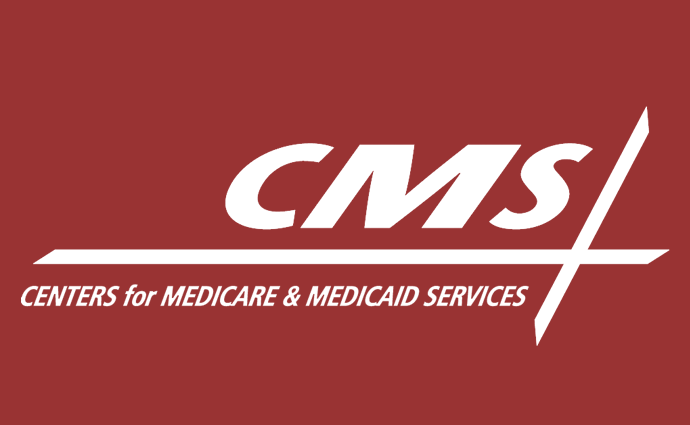OPPS, ASC Final Rule Boosts Medicare Reimbursement by 3.8%
In addition to higher Medicare reimbursement, the OPPS and ASC final rule includes policies to improve health equity in rural and underserved communities.

Source: CMS Logo
- UPDATED 11/02/2022 at 10:00 AM EST: The Calendar Year (CY) 2023 Hospital Outpatient Prospective Payment System (OPPS) and Ambulatory Surgical Center (ASC) Payment System final rule from CMS has increased Medicare reimbursement for hospital outpatient departments and established rural emergency hospitals as a new Medicare provider type.
OPPS and ASC payment rates will increase by 3.8 percent, reflecting a hospital market basket increase of 4.1 percent and a 0.3 percentage point decrease for productivity. This is higher than the 2.7 percent update included in the proposed rule.
The Consolidated Appropriations Act of 2021 introduced rural emergency hospital (REH) as a new hospital designation. Converting to REHs can help critical access hospitals (CAHs) and small rural hospitals avoid closure and maintain access to care in rural and underserved communities.
The final rule solidified participation conditions, payment rates, and Medicare enrollment requirements for REHs.
“CMS is committed to expanding access to care in rural communities and ensuring people with Medicare get the high-quality care they need,” CMS Administrator Chiquita Brooks-LaSure, said in a press release.
READ MORE: CMS Settles on Physician Fee Schedule Conversion Factor Cut of $1.55
“Through the establishment of Rural Emergency Hospitals, supporting clinic visits at rural sole community hospitals and enabling people with Medicare to remotely access behavioral health services in their homes, today’s actions promote patient safety, equity, and quality for these underserved communities.”
CMS finalized a policy allowing clinical staff in hospital outpatient departments to provide remote behavioral health services to patients in their homes.
However, the agency also finalized its proposal to require beneficiaries to receive an in-person service within six months before their remote visit in order for providers to receive payment. Exceptions to this requirement will be allowed if the hospital staff member and beneficiary agree that the risks of an in-person service outweigh the benefits.
Building on the CMS opioid strategy, the agency will pay for five qualifying non-opioid pain management drugs when administered in ambulatory surgical centers in CY 2023. This will increase access to non-opioid drugs and encourage providers to use these drugs over opioids for pain management.
The final rule also solidified the proposal to increase hospital payments for facilities that purchase domestically made NIOSH-approved surgical N95 respirators.
READ MORE: CMS Finalizes Medicare Reimbursement Increase for ESRD Facilities
CMS finalized changes to the Hospital Outpatient Quality Reporting (OQR) Program, ASC Quality Reporting Program, and REH Quality Reporting Program that aim to address disparities and improve health equity.
Following the Supreme Court’s decision in American Hospital Association v. Becerra, CMS finalized a general OPPS payment rate of average sales price plus 6 percent for drugs purchased through the 340B program.
Other updates focused on rural sole community hospitals’ exemption from the Clinic Visit Payment Policy, organ procurement and research, and coding changes for the billing of covered dental services.
Industry Groups Remain Divided
The final rule received mixed reactions from healthcare organizations. Groups like the American Hospital Association (AHA) and 340B Health praised the decision to restore equal 340B payments to hospitals while encouraging CMS to reimburse facilities to make up for the cuts in previous years.
“We are very pleased to see that CMS has restored equity to the Medicare outpatient prospective payment system. For 30 years, 340B has supported hospitals in serving patients living with low incomes, and full Medicare payments for those services are essential for the health care safety net,” Maureen Testoni, president and CEO of 340B Health, said in a statement. “We look forward to working with CMS on compensation for the hospitals that were financially harmed by the unlawful OPPS payment cuts in 2018 to 2022.”
READ MORE: CMS Proposes 2.7% Increase in CY23 OPPS, ASC Reimbursement Rates
However, some groups were not happy with the 340B component of the rule.
“CMS’ decision to increase paying 340B hospitals at inflated Average Sales Price + 6% is arbitrary and capricious, and a clear violation of the Administrative Procedure Act,” Ted Okon, executive director of the Community Oncology Alliance, said in an emailed statement.
“In fact, the Supreme Court decision CMS points to specifically validates the ability of the agency to use hospital survey data to set more appropriate reimbursement rates. CMS already has survey data and even went into detail in the 2021 proposed payment rule that they should be paying 340B hospitals at ASP – 28.7%.”
Additionally, AHA called the reimbursement update for outpatient providers “insufficient” and urged Congress to provide additional support by the end of the year.
“While the AHA is pleased that CMS will provide hospitals and health systems with an improved update to outpatient payments next year compared to the agency’s proposal in July, the increase is still insufficient given the extraordinary cost pressures hospitals face from labor, supplies, equipment, drugs and other expenses,” Stacey Hughes, executive vice president of AHA, said in a statement.
The final rule can be viewed here.
